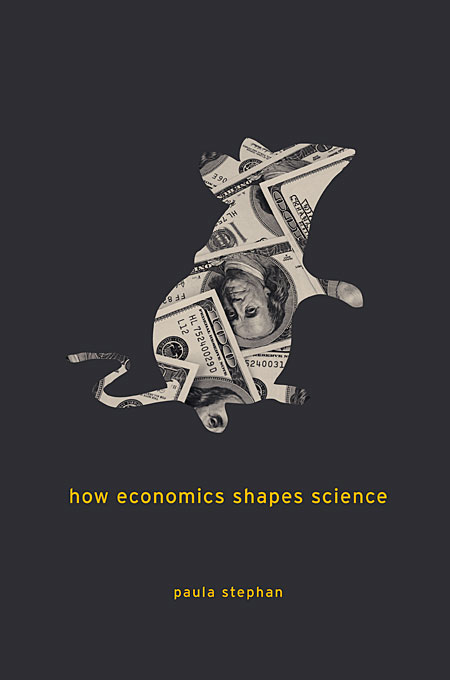Why is it that we do science? The answer most scientists may provide to this question is that their curiosity that drove them towards a career in science. The urge to learn and to discover. For most, this curiosity and passion for science is so strong that they take into account long hours and salaries that are lower than those in other professions. But such passion does of course not mean that there cannot be a quantitative study of the way science works, and of those doing science. Indeed, this is what Paula Stephan from Georgia State University undertakes in her book, How Economics Shapes Science. We can understand a lot by applying economic theory to understand the way we do science. This is not only important to reach a better way of doing science, but it might also lead to a better appreciation of the benefits that come from doing science. How well public funds are spent, and how important science is for all of us. The returns on investment, to use an economic term.
 One of the first question the book addresses is of course to understand why are people doing research? What drives them in addition to the obvious curiosity? What’s the economic currency that makes a career in science lucrative? Money of course, let’s face it, is one reason. Some scientists really do get rich from all the startups and patent revenues – and Stephan provides good examples. But of course, that’s just one aspect. A stronger driver perhaps are fame and recognition. Making an important discovery can create a historic legacy that is unrivalled in comparison to other professions. We know the names of famous scientists even after centuries but not nearly as well those of successful business men.
One of the first question the book addresses is of course to understand why are people doing research? What drives them in addition to the obvious curiosity? What’s the economic currency that makes a career in science lucrative? Money of course, let’s face it, is one reason. Some scientists really do get rich from all the startups and patent revenues – and Stephan provides good examples. But of course, that’s just one aspect. A stronger driver perhaps are fame and recognition. Making an important discovery can create a historic legacy that is unrivalled in comparison to other professions. We know the names of famous scientists even after centuries but not nearly as well those of successful business men.
The points that Stephan make here are all interesting and plausible. Indeed, my impression is that economics already knows a lot about the people doing science. The salaries of scientists, the economic costs of doing a PhD (basically, in most cases you lose out financially). International migration patterns. The increasing number of people studying science, and consequently the fact that fewer and fewer of the scientists we train have a long-term perspective in academia. Academia no longer educates mainly for itself, but for others. There is a lot of data on that and the people working in science, and this book gives a great summary. […]


April 9, 2012
Comments Off on The economics of science